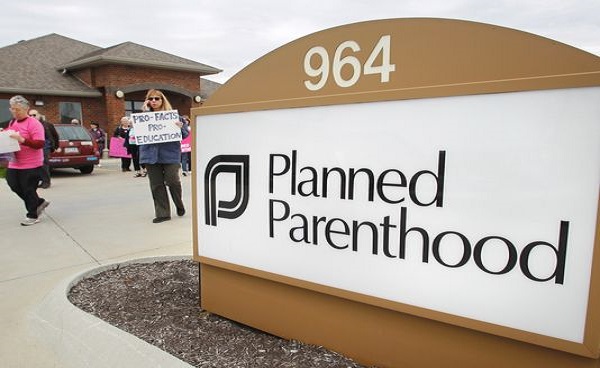An Ohio judge blocked a state law this week that would prevent abortion businesses from dumping aborted babies’ bodies in landfills.
Cincinnati Enquirer reports Hamilton County Common Pleas Court Judge Alison Hatheway issued the preliminary injunction Monday in response to a lawsuit from Planned Parenthood, the American Civil Liberties Union and other pro-abortion groups.
The law, which Gov. Mike DeWine signed in 2020, helps ensure that abortion facilities are not selling aborted baby body parts or disposing their bodies in landfills. It requires abortion facilities to bury or cremate aborted babies’ bodies or allow the mother to make arrangements to do so herself. Failure to comply could result in misdemeanor charges or loss of medical license.
In 2015, a state investigation found that three Ohio abortion facilities were improperly contracting with companies that “cook” aborted babies’ remains and then dump them in landfills.
Follow LifeNews on the Parler social media network for the latest pro-life news!
This week, however, Hatheway argued in her ruling that the state does not have a compelling interest in requiring abortion facilities to bury or cremate the remains of aborted babies, according to the Enquirer.
“The state does not require health care facilities to dispose of identical tissue after miscarriage and infertility treatments by cremation or interment, thus casting strong doubt on the state’s claimed purposes,” the judge wrote.
A Democrat, Hatheway said the plaintiffs likely will succeed in their claim that the law violates the Ohio Constitution in several ways, including due process and equal protection, according to Cleveland.com. She said due process “extends to matters involving privacy, procreation, and bodily integrity and autonomy.”
The ACLU, Planned Parenthood and other groups suing Ohio celebrated the ruling in a joint statement.
“Compliance with this law would have a devastating impact on the ability of Ohioans to access time-sensitive health care, and intentionally denies them autonomy over their own lives, especially harming people with low-incomes, our Black, Latino and Indigenous communities, and people in rural communities,” the statement read. “While we are grateful for today’s decision, safe, accessible abortion care is still in jeopardy across the state and the nation.”
Despite the setback, pro-life leaders expressed confidence that the law ultimately will be upheld. The U.S. Supreme Court ruled in favor of a similar Indiana law in 2019.
“SB 27 simply dignifies the life of a child who died because of an abortion and provides a proper burial for that child,” Mike Gonidakis, president of Ohio Right to Life, told the Cleveland Dispatch in January. “The ACLU will do everything in its power to sterilize abortion and attempt to hide the fact that a successful abortion leads to the death of an innocent child. Planned Parenthood would rather have all aborted babies carted off to landfills in metal containers.”
The Springfield News-Sun reports Ohio recorded 20,605 abortions in 2020, a little more than half of which were surgical abortions. Chemical, or drug-induced abortions, do not apply under the new law because women give birth to their aborted babies at home, and they typically are instructed to flush the baby’s body down the toilet.
Mark Harrington, president of the pro-life organization Created Equal, which is based in Ohio, said the law poses a major threat to the abortion industry.
“Laws requiring aborted babies to receive a dignified final disposition in some ways pose a bigger threat than many abortion bans do. Because abortionists are the dregs of medicine, they will be unable to comply with these new regulations. That is why the abortion industry is fighting so hard to challenge this law,” Harrington said earlier this year. “The courts ought to uphold this law and the dignity of human life.”
In the past several years, a number of states have passed legislation to regulate how abortion facilities dispose of aborted babies’ bodies. Their actions came in the wake of viral undercover videos that exposed top officials at Planned Parenthood negotiating the prices of aborted babies’ body parts. In 2015, the Ohio Attorney General’s office discovered that Planned Parenthoods in Ohio contract with waste disposal companies that dispose of aborted babies in landfills.
A gruesome discovery inside a late Indiana abortionist’s garage further demonstrated the need for such laws. In 2019, authorities found 2,246 remains of aborted babies stored in boxes in the late Indiana abortionist Ulrich Klopfer’s garage in Illinois. A few weeks later, they found 165 more babies’ remains in a vehicle stored on one of his properties. Klopfer’s family reported finding the remains shortly after he died.








